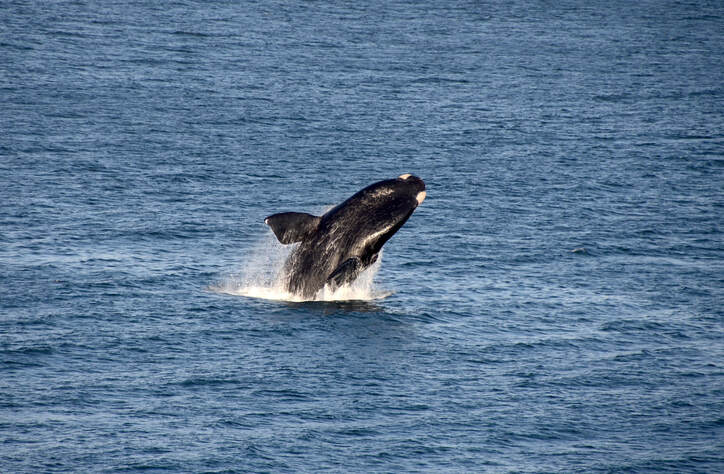
Conservative author Roger Scruton discusses the meaning of natural beauty to human observers: "From the earliest drawings … art has searched for meaning in the natural world. The experience of natural beauty is not a sense of ‘how nice!’ or ‘how pleasant!’ It contains a reassurance that this world is a right and fitting place to be—a home in which our human powers and prospects find confirmation." [1]
But are we wrecking our shared home? Nature has long inspired composers, and as a result composers’ musics have been a sort of commentary on nature. Because of the distinctive ecological challenges we face in the 21st Century, thinking about nature has become a critical issue—our relationship with the natural world matters.
I find Alan Hovhaness’s composition, And God Created Great Whales[2], a powerful statement, in the Western classical tradition. And so I use this composition to open conversations about place and ecological sustainability with my students. Hovhaness uses musical instruments to echo the melodies of whales. But Western authors have long failed to recognize animal music as music. In this tradition, music is something human persons do, not whales. But whale songs seem to be a prime example of animal music. Whales share melodies across long distances, and even have favorite songs. We don’t know entirely what whales do with these melodies, or how they experience them. Possibly for aggression or mating. Humans use music for both of these purposes. Or perhaps to experience beauty. We do know whales have an advanced limbic system, a system that is connected to emotional experiences in mammals.[3] This makes whales similar to humans in some interesting ways. Knowing this, perhaps, helps us see our pollution of the oceans a real problem. A moral problem. One we must work to solve.
Music happens in places. The musics of whales happens in the deep ocean. Some human musics occur in urban places, and others in rural places. Such a simple statement, and yet many people think about music as placeless. Something only heard digitally and created a distant somewhere else. But all musics happen somewhere. Our first experiences of music are often in our homes, with mothers and grandmas, fathers and grandpas, uncles and aunts, singing and dancing for the joy of being.
But today everything is not in order in our home. In Greta Thunberg's words, "our house is on fire,"[4] and this seems to be true. Everybody has a duty to act, in small and large ways, to help repair our planet. Our home. To understand others. To understand the non-human world. To work for protection of wilderness and for clean soil, water, and air. To create new parks. And to work for reducing waste, including CO2.
DJS
References:
[1] Scruton, Roger. Beauty: A very short introduction (New York: Oxford University Press, 2011), 65.
[2] Link: https://youtu.be/1pTu4pkmtpU
[3] http://www.ecofuturedevelopment.com/orca-whale-emotional-center/
[4] Thunberg, Greta. No one is too small to make a difference (Dante, MT: Penguin Books, 2019).
Image: https://upload.wikimedia.org/wikipedia/commons/b/ba/Southern_right_whale_breaching%2C_South_Africa.jpg
 RSS Feed
RSS Feed
